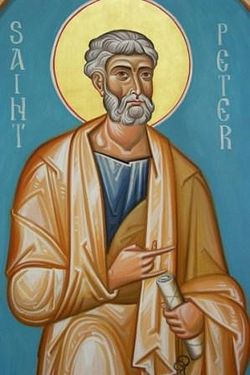"
Because the people have forsaken me and have profaned this place by
making offerings in it to other gods whom neither they nor their fathers
nor the kings of Judah have known; and because they have filled this
place with the blood of innocents, and
have built the high places of Baal to burn their sons in the fire as
burnt offerings to Baal, which I did not command or decree, nor did it
come into My mind— therefore, behold, days are coming, declares the Lord, when this place shall no more be called Topheth, or the Valley of the Son of Hinnom, but the Valley of Slaughter. And
in this place I will make void the plans of Judah and Jerusalem, and
will cause their people to fall by the sword before their enemies, and
by the hand of those who seek their life. I will give their dead bodies
for food to the birds of the air and to the beasts of the earth. And
I will make this city a horror, a thing to be hissed at. Everyone who
passes by it will be horrified and will hiss because of all its wounds. And
I will make them eat the flesh of their sons and their daughters, and
everyone shall eat the flesh of his neighbor in the siege and in the
distress, with which their enemies and those who seek their life afflict
them."
- Jeremiah 19:4-9
In this passage, God is announcing His judgment on the people of Israel because of their idolatry, a literal idolatry of worshiping false gods. And what is worse is that part of their idolatry is human sacrifice, the burning of their own
children as sacrifices to Baal, the Canaanite deity of storms and fertility. The Israelites were sacrificing their children because they thought that it would bring them rain and good crops.
The minor aspect of this fertility ritual is that an idol can do nothing to help our crops. It is the biblical God, Jehovah, alone who gives rain and makes the earth to be fruitful. As reward for faithfulness, He promises, "
The Lord will make you abound in
prosperity, in the fruit of your womb and in the fruit of your livestock
and in the fruit of your ground, within the land that the Lord swore to your fathers to give you. The Lord
will open to you His good treasury, the heavens, to give the rain to
your land in its season and to bless all the work of your hands" (Deuteronomy 28:11-12). The Israelites had committed the irrational act of turning from the true and living God who
could bless them, to a wood or stone idol which had no power at all.
But beyond the irrationality of their apostasy, the Israelites had accepted the
horrific ritual of human sacrifice - and not just any humans, but rather their own
children!
Compare this to our own day, in which Americans have largely abandoned the Christian heritage which had long underlain this country. And in its place we have erected many idols, not just of false religions, but also of quick riches, drugs, and entertainment. And for the sake of these idols, we sacrifice our children, washing them down the drains, torn in pieces, and removed from sight at the neighborhood abortionist's office.
What is the effect of such moral perversion?
Here is what God said to those ancient Israelites: "
I will make void the plans of Judah and Jerusalem, and will cause their
people to fall by the sword before their enemies, and by the hand of
those who seek their life. I will give their dead bodies for food to the
birds of the air and to the beasts of the earth. And
I will make this city a horror, a thing to be hissed at. Everyone who
passes by it will be horrified and will hiss because of all its wounds. And
I will make them eat the flesh of their sons and their daughters, and
everyone shall eat the flesh of his neighbor in the siege and in the
distress, with which their enemies and those who seek their life afflict
them" (Jeremiah 19:7-9). Where the Israelites had fed their babies to idols who could never answer them, instead they will be forced to consume their own babies, just to survive famine. The curse would be on them and their land.
How will God judge America for the same abominations? I tremble to imagine.







